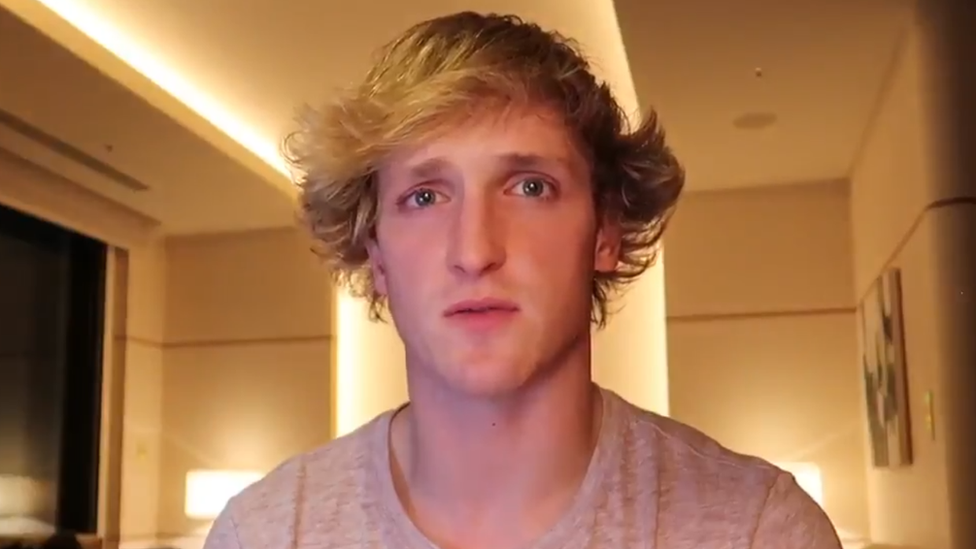Logan Paul 'more popular' than Zoella with children
- Published

Logan Paul replacing Zoella as children's favourite could indicate a change in the content they want, say researchers
Controversial vlogger Logan Paul has knocked Zoella off the top spot as UK children's favourite YouTuber, according to a study.
Paul was embroiled in a row earlier this year when he posted a video showing the body of an apparent suicide victim.
His rise suggested children were seeking "edgier" content, said an analyst for research firm Childwise.
It was likely children had been exposed to "shocking content", he added.
The Childwise study looked at the media habits of 2,000 children in the UK aged five to 16. It found that YouTube was now the most popular online destination, with virtually all five to 16-year-olds visiting the site.
"Zoella losing her top YouTuber slot to Logan Paul shows that we could be moving into a new era with a change in the kind of vloggers that are popular with children," said Simon Leggett, research director.
"Children used to mainly follow wholesome, big-sister/brother types who offered chatty advice and company. However, children's favourite new vloggers are more edgy, with a style more akin to negative playground behaviour where the most popular vloggers are the ones that do the worst possible things they can get away with on YouTube."
Paul has been criticised for a video, filmed in Japan's infamous suicide forest, showing a dead body.
It was removed from YouTube, following a barrage of criticism and the vlogger was taken off the site's Preferred programme, which lets brands sell ads on the top 5% content creators.
The site also said it was putting "on hold" other projects with the US vlogger.
"Prior to this year, Logan had not been chosen by children at all," said Mr Leggett.
"His growing audience, which starts as young as age nine, were potentially exposed to shocking content over new year after Logan's ill-considered decision to upload a widely criticised video of his visit to Aokigahara, Japan's 'suicide forest.'"
Paul apologised for the video, saying he did not expect to be forgiven.
YouTube is now the most popular online destination for children aged five to 16
The Childwise study looked at the overall media habits of children.
It suggested that more than half of children now use Instagram, while messaging app WhatsApp has also increased significantly in popularity, with two in five saying they use it.
Twitter and Facebook however, continue to face a decline in popularity among the younger audience. Only one in five said they used Twitter while Facebook was more likely to be used by girls - only 2% of boys made mention of it.
The research also found that children now watch more video on devices than on traditional TVs and are embracing voice-activated devices such as Amazon's Alexa and Apple's Siri.
It could be creating an "Alexa generation", postulated Mr Leggett.
"There is no requirement for children to use any common courtesy when using voice recognition technology, and with so many young children interacting with these devices, asking for help with homework, requesting songs, turning devices on and off, it is possible this abbreviated language could spill over into conversations in real life.
"Will children become accustomed to saying and doing whatever they want to a digital assistant, 'Do this, Do that,' talking as aggressively or rudely as they like without any consequences? Will they then start doing the same to shop assistants or teachers?" he asked.
- Published11 January 2018
- Published3 January 2018